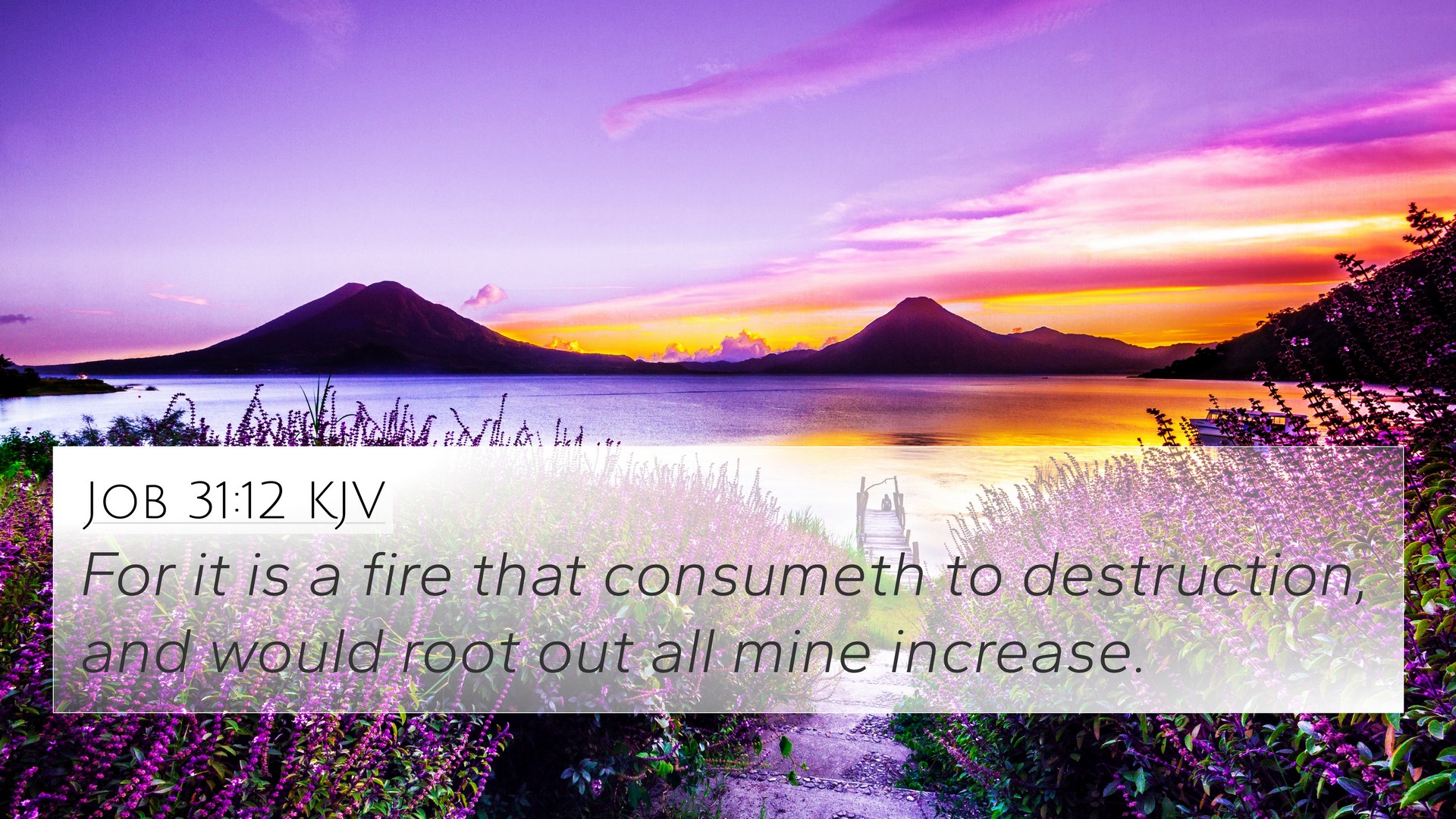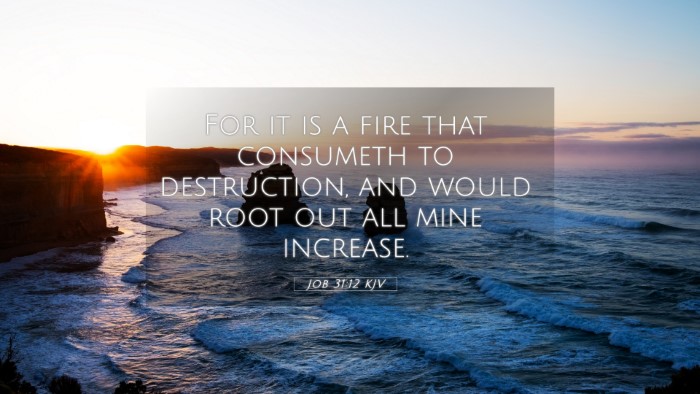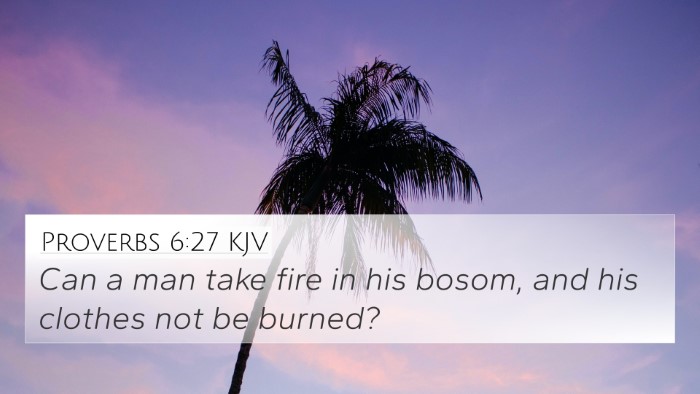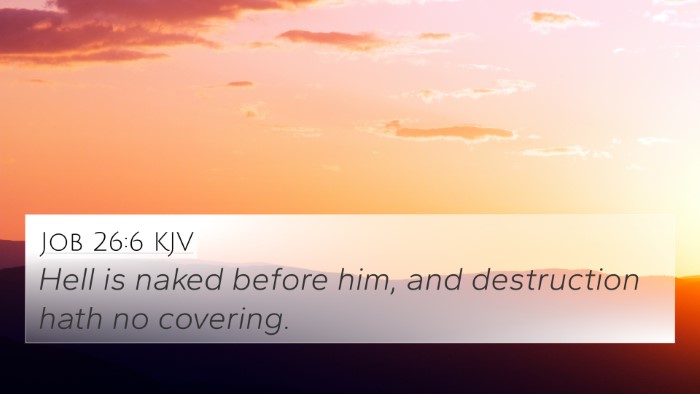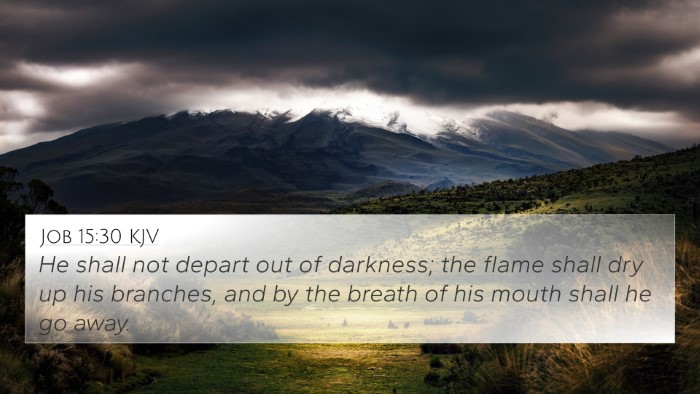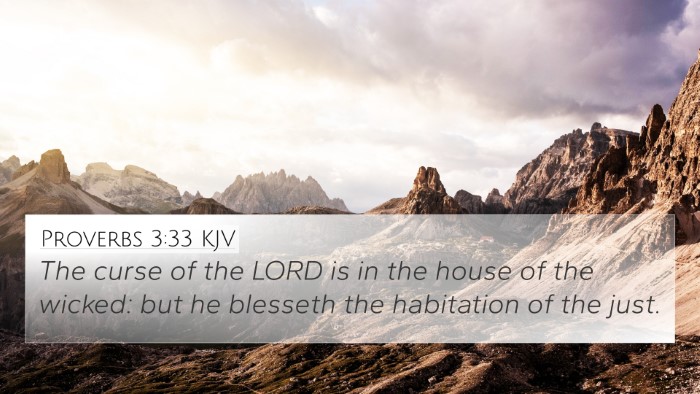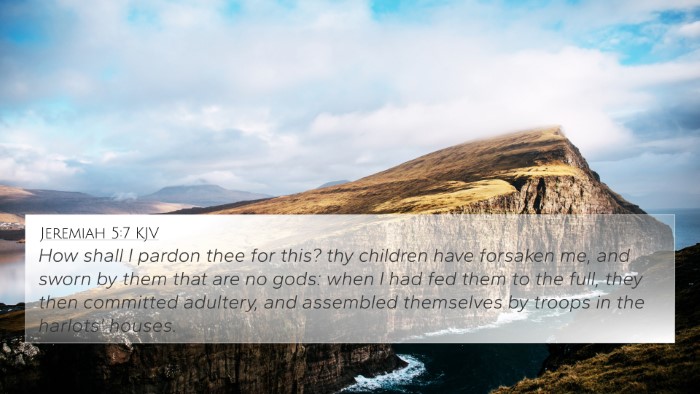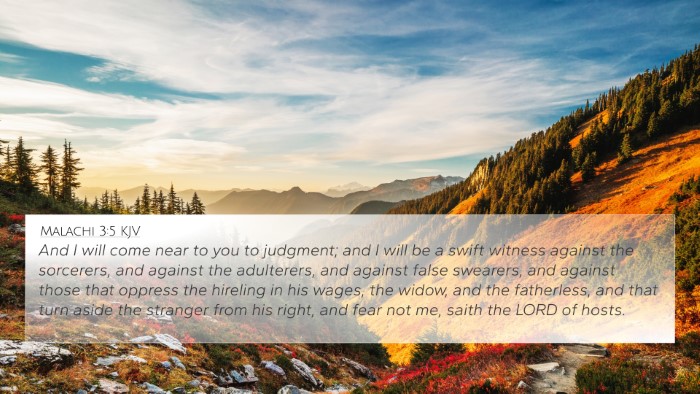Understanding Job 31:12
Job 31:12 states: "For it is a fire that consumes to Destruction, and would root out all mine increase." This verse is a critical part of Job’s defense against the accusations made by his friends regarding his character and conduct. Below, we provide an interpretation of this verse combining insights from renowned public domain commentaries.
Contextual Analysis
This verse is part of Job's final discourse where he vehemently defends his integrity and righteousness in the face of suffering. Job lists numerous examples of his moral and ethical behavior, asserting that he has lived in such a way as to avoid the judgment that he is currently experiencing.
Matthew Henry's Commentary
According to Matthew Henry, Job here emphasizes that sinful acts, such as immorality, lead to dire consequences. He uses the metaphor of fire to illustrate how such behavior consumes and destroys everything valuable in one's life. The implications of this metaphor highlight not just physical destruction but also spiritual devastation and the loss of blessings.
Albert Barnes' Commentary
Albert Barnes elaborates on the nature of this fire, indicating that it refers to the destructive nature of sin. He notes that the consequences of illicit thoughts or actions can lead to the complete ruin of one's prosperity and good standing. Barnes emphasizes the imperative nature of adhering to godly principles, as failure to do so can result in severe ramifications.
Adam Clarke's Commentary
Adam Clarke provides additional context by linking the desire for immoral relations to the broader theme of lust and how it leads to ruinous consequences. Clarke stresses that Job is affirming his purity and integrity, positioning his lifestyle against the fires of sin, which bring about loss and destruction.
Cross-Referencing Biblical Texts
Job 31:12 relates to several scripture passages that echo the themes of sin and its destructive outcomes. Below are key cross-references:
- James 1:15 - "Then desire when it has conceived gives birth to sin, and sin when it is fully grown brings forth death." This verse underscores the deadly outcome of unchecked desires.
- Proverbs 6:27-29 - "Can a man carry fire next to his chest and his clothes not be burned?" This highlights the inevitable destruction that sin brings.
- Galatians 6:7-8 - "For whatever one sows, that will he also reap." This supports the idea that actions have consequences.
- 1 Corinthians 3:13-15 - Discussing how one’s work will be tested by fire, indicating that those rooted in sinful conduct will be destroyed.
- Romans 6:23 - "For the wages of sin is death..." This directly correlates to Job's statement regarding destruction resulting from immorality.
- Psalm 37:1-2 - "Fret not yourself because of evildoers; be not envious of wrongdoers! For they will soon fade like the grass and wither like the green herb." This reinforces the fleeting nature of sinful prosperity.
- Proverbs 11:5 - "The righteousness of the blameless keeps his way straight, but the wicked falls by his own wickedness." This underscores the inevitable downfall of the unrighteous.
Thematic Bible Verse Connections
Job 31:12 becomes a part of a broader discourse that encompasses the themes of righteousness, integrity, and the consequences of sin. The connections between these verses illustrate a consistent biblical message regarding the reality of divine justice and moral accountability.
Conclusions
In conclusion, Job 31:12 serves as a poignant reminder of the destructive power of sin and the necessity of living a life aligned with God's principles. By cross-referencing with other Biblical texts, one can find deeper insights and reinforce the understanding that moral integrity is paramount in the Christian faith. Engaging with cross-referencing tools and resources can enrich one's study, offering a broader understanding of Scripture and its interconnected truths.
